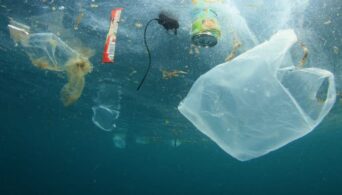The SeaCleaners’ Scientific Advisory Board meets up to anchor its strategy
Indonesia
Plastic pollution
Science
12 December 2023
The SeaCleaners' Scientific Advisory Board met in Bali from November 20 to 22, to align the strategy of the scientific division with the international strategy of The SeaCleaners and to address the major challenges of plastic pollution. A meeting at the crossroads of knowledge between scientists specializing in marine debris research.

The Scientific Advisory Board meeting, chaired by Gwen Coat, head of the scientific division and attended by 8 board members, fulfilled its objective: to define our scientific strategy by focusing on the mission rather than on the technical means at our disposal.
To this end, The SeaCleaners will continue its objectives of quantifying this pollution in coastal environments, while focusing on the location of accumulations – which are still too little known; thanks to these international partnerships, the cluster will bring together a community of experts to pool best practices in the discipline; finally, this pooled knowledge will be shared with the scientific community, political decision-makers and the general public to bring about a change in behavior. The strategy, still in the comment period, will be made public in January.
This physical working session was a key moment for CSI members: it was the Council’s first face-to-face workshop since its creation in 2020.
For Gwen Coat, these constructive and often intense exchanges took place in a spirit of goodwill, driven by the desire to work towards a single goal: science at the service of change.
Indeed, this is how the mission of The SeaCleaners’ scientific division can be summed up in one sentence:
To contribute to global knowledge of plastic pollution, with the ultimate aim of creating change.

Bali wasn’t chosen by chance, of course, and CSI members went to visit the Mobula8, to take stock of the 1st clean-up campaigns on the clean-up boat, 6 months after it was launched. Antoine Iché presented the boat’s operations and technical aspects.
The meeting was also an opportunity to visit the new premises of the University of Udayana (FKP UNUD), in order to strengthen the existing cooperative links between The SeaCleaners, its CSI and the University.
Welcomed by the University’s Dean, Professor I Wayan Nuarsa and Vice-Dean Mr I Gede Hendrawan (and scientific partner for the plastic characterization on M8), as well as the study program coordinator, Ms Dati Pertami, the TSC delegation was able to discuss the studies carried out at the University and potential collaborations between the NGO and the University.
The science of ocean plastic pollution is a very recent field of research. There is still much to discover about the impact of this anthropogenic pressure on the ocean, the climate, living organisms and our health. For the International Scientific Council, a better understanding of this pollution means a better response.

